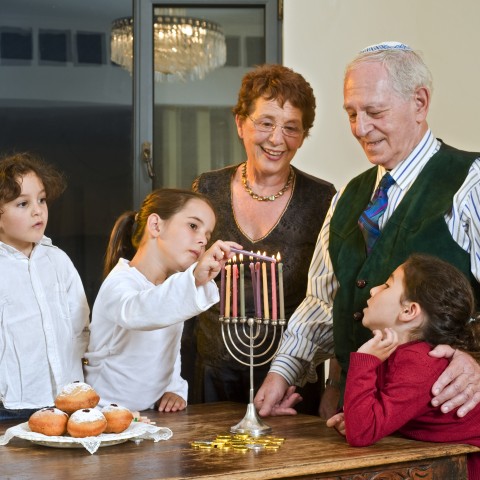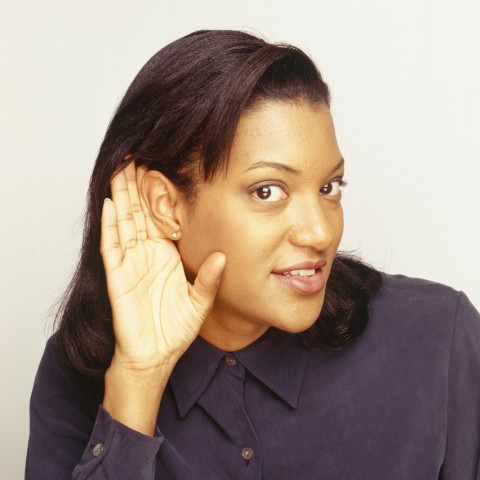Did you know that every minute of the day, one billion tons of rain falls on the earth? Hard to believe, considering the climate crisis! Of course, all that rain is not equally shared across the planet.
So, would you mention this fascinating fact to your new Israeli acquaintance? Well, small talk about local weather is actually a great conversation-starter. Everyone cares about the weather and you’re sure to hear a few interesting opinions! Seasons can be quite unpredictable these days and nobody knows the peculiarities of a region better than the locals.
HebrewPod101 will equip you with all the weather vocabulary you need to plan your next adventure. The weather can even be an important discussion that influences your adventure plans. After all, you wouldn’t want to get caught on an inflatable boat with a two-horsepower motor in Hurricane Horrendous!

Table of Contents
- Talking about the weather in Israel
- Words for the first day of spring
- Do You Know the Essential Summer Vocabulary?
- Must-Know Autumn vocabulary
- Winter
- HebrewPod101 can prepare you for any season.
1. Talking about the weather in Israel
If you’re like me, your day’s activity plan is likely to begin with a strong local coffee and a chat about what the sky is doing. After all, being prepared could be the difference between an amazing day and a miserable one! Luckily, it’s not difficult to comment on Israeli weather – just start with these simple words and phrases.
1- Rain – גשם (geshem)
Watercolor artists, take out your paints! You might not be able to venture out on foot today, but just embrace the rain as part of your Israeli experience. When the rain stops, the air will be clean and colours vibrant.
2- The snow has covered everything – השלג כיסה את הכל (Ha’sheleg kisa et ha-kol).
A fresh blanket of snow is irresistibly beautiful. Pull on your boots and beanie, and leave your tracks in this foreign landscape. Don’t resist the urge to build a snowman – you need this!
3- Fluffy cloud – ענן צמרירי (anan tsam’riri)
When you’re waiting for a warm beach day, fluffy white clouds in a blue sky are a good sign. Don’t forget your sunscreen, as clouds will intensify the UV rays hitting your skin.
4- The water froze on the glass – המים קפאו על הזכוכית (Ha-mayim kaf-u al ha-z’khukhit).
Night temperatures can get chilly and might freeze the condensation on your windows. A good way to clear them up is with warm salt water.
5- The heavy rain could cause flash flooding – הגשם הכבד הזה יכול לגרום לשטפונות (Ha-geshem ha-kaved ha-ze yakhol lig’rom le-shit’fonot).
If you’re visiting Israel in the wet season, it’s important to stay informed when heavy rain sets in, so keep an eye on the weather radar. Avoid river activities and rather spend this time making a home-cooked meal and brushing up on your Hebrew weather words.
6- Flood – הצפה (hatzafah)
If you do get caught in a flood, your destination should no longer be ‘home’, but the nearest high ground.
7- The typhoon has hit – הטייפון היכה (Ha’tayfun hika.)
Not all countries experience typhoons, but you need to know when to prepare for one! It will be very scary if you’ve never experienced one before. Your local neighbours are the best people to advise you on where to take shelter, as they’ve been doing it for generations. Be sure to get the low-down at the first sign of rough weather!
8- Check the weather report before going sailing – בדוק את תחזית מזג האוויר לפני הליכה לשיט (B’dok et takhazit mezeg ha-avir lif’nei halikha le-sha’it).
When planning an outdoor activity, especially on a body of water, always be prepared for a change in the weather. Ask your hotel receptionist or neighbour where you can get a reliable daily weather report, and don’t forget your sweater!
9- Today’s weather is sunny with occasional clouds – המזג אוויר היום הוא שמשי עם עננים מזדמנים
(Ha-mezeg avir hayom hu shim’shi im ananim miz’dam’nim).
Sunny weather is the dream when traveling in Israel! Wake up early, pack the hats and sunblock and go and experience the terrain, sights and beautiful spots. You’ll be rewarded with happy vibes all around.
10- A rainy day – יום גשום (yom gashum)
Remember when you said you’d save the Hebrew podcasts for a rainy day? Now’s that day!
11- Scenic rainbow – נוף קשת בענן (nof keshet be-anan)
The best part about the rain is that you can look forward to your first rainbow in Israel. There’s magic in that!
12- Flashes of lightning can be beautiful, but are very dangerous – הבזקי ברק יכולים להיות יפיפיים, אך הם מסוכנים ביותר (Hevzekey barak yekholim lihiyot yefeifi’im, akh hem mesukanim beyoter).
Lightning is one of the most fascinating weather phenomena you can witness without really being in danger – at least if you’re sensible and stay indoors! Did you know that lightning strikes the earth 40-50 times per second? Fortunately, not all countries experience heavy electric storms!
13- 25 degrees Celsius – עשרים וחמש מעלות צלזיוס (esrim ve’kha’mesh ma’a’lot tselzius)
Asking a local what the outside temperature will be is another useful question for planning your day. It’s easy if you know the Hebrew term for ‘degrees Celsius’.
14- Fahrenheit – פרנהייט (farenhait)
Although the Fahrenheit system has been replaced by Celsius in almost all countries, it’s still used in the US and a few other places. Learn this phrase in Hebrew in case one of your companions develops a raging fever.
15- Today the sky is clear – בהיר (bahir)
Clear skies mean you’ll probably want to get the camera out and capture some nature shots – not to mention the great sunsets you’ll have later on. Twilight can lend an especially magical quality to a landscape on a clear sky day, when the light is not filtered through clouds.
16- Light drizzle – טפטוף קל (tiftuf kal)
Days when it’s drizzling are perfect for taking in the cultural offerings of Israel. You could go to the mall and watch a Israeli film, visit museums and art galleries, explore indoor markets or even find the nearest climbing wall. Bring an umbrella!
17- Temperature – טמפרטורה (temperatura)
Because of the coronavirus, many airports are conducting temperature screening on passengers. Don’t worry though – it’s just a precaution. Your temperature might be taken with a no-touch thermometer, which measures infrared energy coming off the body.
18- Humid – לח (lach)
I love humid days, but then I’m also a water baby and I think the two go
together like summer and rain. Find a pool or a stream to cool off in – preferably in the shade!
19- With low humidity the air feels dry – כאשר הלחות נמוכה, יש תחושה של יובש באוויר (Ka’asher ha’lakhut nemukha, yesh tkhusha shel yovesh ba-avir).
These are the best days to go walking the hills and vales. Just take at least one Israeli friend with you so you don’t get lost!
20- The wind is really strong – הרוח מאוד חזקה (haru’akh me’od khazaka).
A strong wind blows away the air pollution and is very healthy in that respect. Just avoid the mountain trails today, unless you fancy being blown across the continent like a hot air balloon.
21- It’s very windy outside – סוער בחוץ (So’er ba-khutz).
Wind! My least favourite weather condition. Of course, if you’re a kitesurfer, a windy day is what you’ve been waiting for!
22- Wet roads can ice over when the temperature falls below freezing – phrase
The roads will be dangerous in these conditions, so please don’t take chances. The ice will thaw as soon as the sun comes out, so be patient!
23- Today is very muggy – היום מאוד לח וחם (Ha-yom me’od lakh ve-kham).
Muggy days make your skin feel sticky and sap your energy. They’re particular to high humidity. Cold shower, anyone? Ice vest? Whatever it takes to feel relief from the humidity!
24- Fog – ערפל (arafel)
Not a great time to be driving, especially in unknown territory, but keep your fog lights on and drive slowly.
25- Hurricane – הוריקן (hurikan)
Your new Israeli friends will know the signs, so grab some food and candles and prepare for a night of staying warm and chatting about wild weather in Israel.
26- Big tornado – טורנדו גדול (tor’nado gadol)
If you hear these words, it will probably be obvious already that everyone is preparing for the worst! Definitely do whatever your accommodation hosts tell you to do when a tornado is expected.
27- It’s cloudy today – מעונן היום (Me’unan ha-yom).
While there won’t be any stargazing tonight, the magnificent clouds over Israel will make impressive photographs. Caption them in Hebrew to impress your friends back home!
28- Below freezing temperatures – טמפרטורות מתחת לנקודת הקיפאון (tem’peraturor mi-takhat li’nkudat ha-kipa’on)
When the temperature is below freezing, why not take an Uber and go shopping for some gorgeous Israeli winter gear?
29- Wind chill is how cold it really feels outside – צינת הרוח היא הרגשת הקור האמיתית בחוץ (Tsi’nat ha’ruach hi har’gashat h’kor ha-ami’tit ba’khuts).
Wind doesn’t change the ambient temperature of the air, it just changes your body temperature, so the air will feel colder to you than it actually is. Not all your Israeli friends will know that, though, so learn this Hebrew phrase to sound really smart!
30- Water will freeze when the temperature falls below zero degrees celsius – מים קופאים כאשר הטמפרטורה יורדת מתחת לאפס מעלות צלזיוס.מים קופאים כאשר הטמפרטורה יורדת מתחת לאפס מעלות צלזיוס (Mayim kof’im ka’asher hatem’peratura yoredet mitakhat le’efes ma’a lot tsel’zius).
If you’re near a lake, frozen water is good news! Forgot your ice skates? Don’t despair – find out where you can hire some. Be cautious, though: the ice needs to be at least four inches thick for safe skating. Personally, I just slide around on frozen lakes in my boots!
31- Waiting to clear up – מחכה שיתבהר (mekhake she`yitbaher)
Waiting for the weather to clear up so you can go exploring is frustrating, let’s be honest. That’s why you should always travel with two things: a scintillating novel and your Hebrew Nook Book.
32- Avoid the extreme heat – מתחמק מחום כבדמתחמק מחום כבד (mit’khamek me’khom kaved)
Is the heat trying to kill you? Unless you’re a hardened heatwave hero, definitely avoid activity, stay hydrated and drink electrolytes. Loose cotton or linen garb is the way to go!
33- Morning frost – צינת בוקר (tsi’nat bo’ker)
Frost is water vapour that has turned to ice crystals and it happens when the earth cools so much in the night, that it gets colder than the air above it. Winter is coming!
34- Rain shower – ממטר גשם (mimtar geshem)
Rain showers are typically brief downpours that drench the earth with a good drink of water.
35- In the evening it will become cloudy and cold – בערב, יהפך להיות מעונן וקר (Ba-erev, ye’hafech lihiyot me’unan ve’kar).
When I hear this on the Hebrew weather channel, I buy a bottle of wine (red, of course) and wood for the fireplace. A cold and cloudy evening needs its comforts!
36- Severe thunderstorm – סופת ברקים חמורה (sufat b’rakim kha’murah)
Keep an eye on the Israeli weather maps if it looks like a big storm is coming, so you’ll be well-informed.
37- Ice has formed on the window – קרח נוצר על החלון.קרח נוצר על החלון (Ke’rakh notsar al ha-kha’lon).
You could try this phrase out on the hotel’s helpful cleaning staff, or fix the problem yourself. Just add a scoop or two of salt to a spray bottle of water – that should work!
38- Large hailstones – גושי ברד גדולים (gu’shei ba’rad g’dolim)
As a kid, I found hail crazy exciting. Not so much now – especially if I’m on the road and large hailstones start pummeling my windscreen!
39- Rolling thunder – רעם מתגלגל (ra’am mitgal’gel)
The rumble of rolling thunder is that low-volume, ominous background sound that goes on for some time. It’s strangely exciting if you’re safely in your hotel room; it could either suddenly clear up, or escalate to a storm.
40- Sleet – גשם-שלג (geshem-sheleg)
Sleet is tiny hard pieces of ice made from a mixture of rain and melted snow that froze. It can be messy, but doesn’t cause major damage the way hail does. Pretty cool to know this word in Hebrew!
2. Words for the first day of spring
You know the feeling: your heart skips a beat when you wake up and spring has sprung! Spring will reward you with new blossoms everywhere, birdsong in the air, kittens being born in the neighborhood and lovely views when you hit the trails. Pack a picnic and ask a new Israeli friend to show you the more natural sights. Don’t forget a light sweater and a big smile. This is the perfect time to practice some Hebrew spring words!
3. Do You Know the Essential Summer Vocabulary?
Summer! Who doesn’t love that word? It conjures up images of blue skies, tan skin, vacations at the beach and cruising down the coast in an Alfa Romeo, sunglasses on and the breeze in your hair. Of course, in Israel there are many ways to enjoy the summer – it all depends on what you love to do. One thing’s for sure: you will have opportunities to make friends, go on picnics, sample delicious local ice-cream and maybe even learn to sing some Hebrew songs. It’s up to you! Sail into Israeli summer with this summer vocab list, and you’ll blend in with ease.
4. Must-Know Autumn vocabulary
Victoria Ericksen said, “If a year was tucked inside of a clock, then autumn would be the magic hour,” and I agree. Who can resist the beauty of fall foliage coloring the Israeli landscape? Birds prepare to migrate; travelers prepare to arrive for the best weather in Israel.
The autumnal equinox marks the moment the Sun crosses the celestial equator, making day and night almost equal in length. The cool thing about this event is that the moon gets really bright – the ‘harvest moon’, as it’s traditionally known.
So, as much as the change of season brings more windy and rainy days, it also brings celebration. Whether you honor Thanksgiving, Halloween or the Moon Festival, take some time to color your vocabulary with these Hebrew autumn words.
5. Winter
Winter is the time the natural world slows down to rest and regroup. I’m a summer girl, but there are fabulous things about winter that I really look forward to. For one, it’s the only season I get to accessorize with my gorgeous winter gloves and snug down coat!
Then, of course, there’s ice skating, holiday decorations and bonfires. As John Steinbeck said, “What good is the warmth of summer, without the cold of winter to give it sweetness?” Get ready for the cold season with our list of essential Winter words!
6. HebrewPod101 can prepare you for any season.
Now that you know how to inquire and comment on the weather in Israel, you
can confidently plan your weather-ready travel itinerary. How about this for an idea: the next
time you’re sitting in a Israeli street café, try asking someone local this question:
“Do you think the weather will stay like this for a few days?” If you loved learning these cool Hebrew weather phrases with us, why not take it a step further and add to your repertoire? HebrewPod101 is here to help!








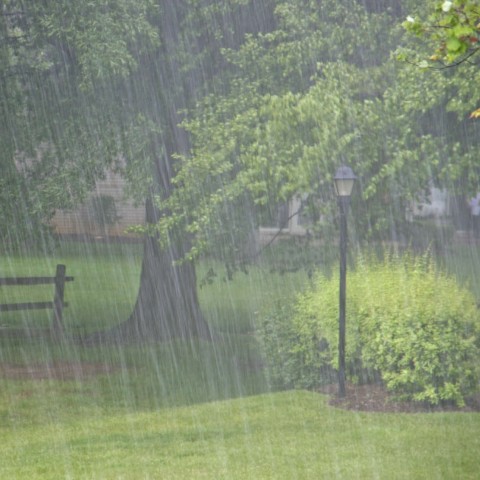

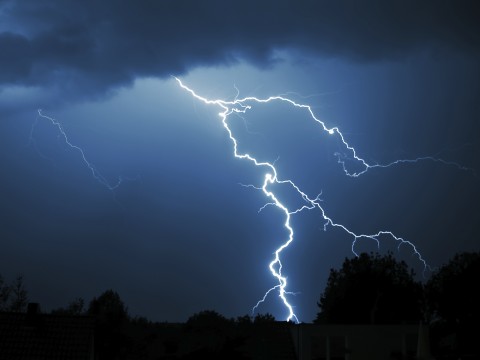
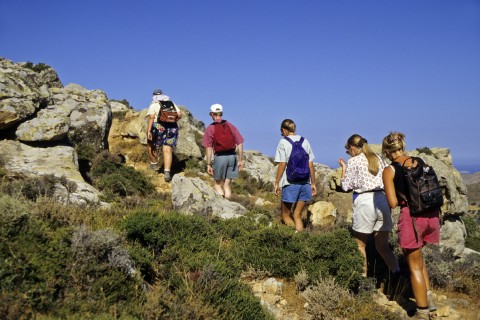
























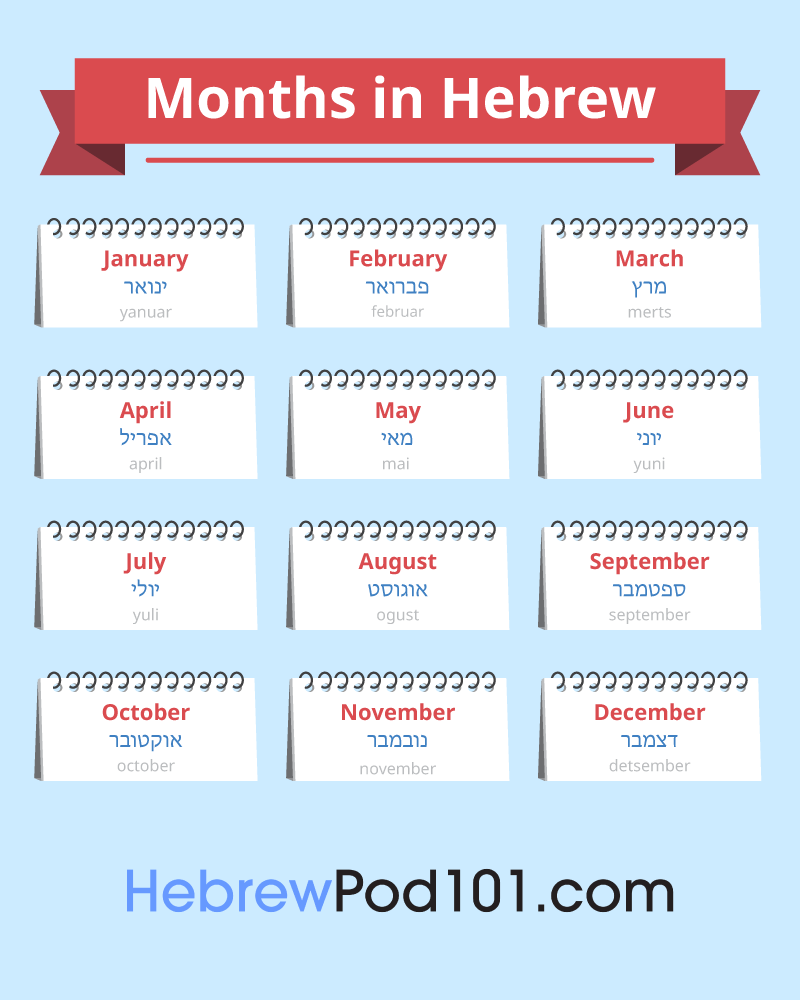



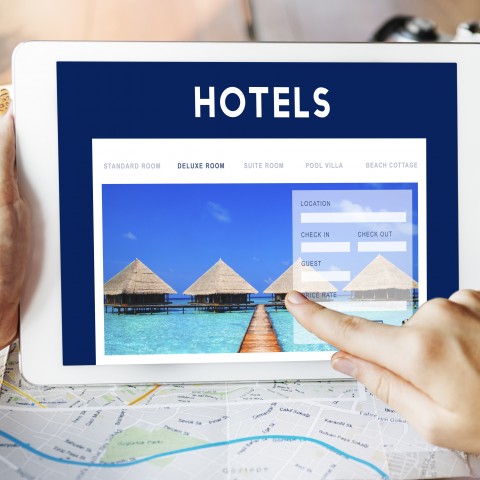










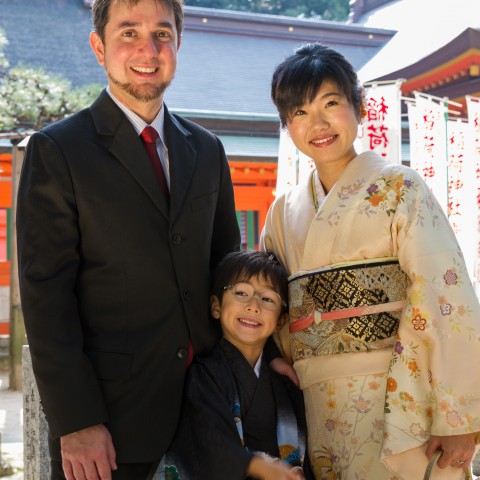














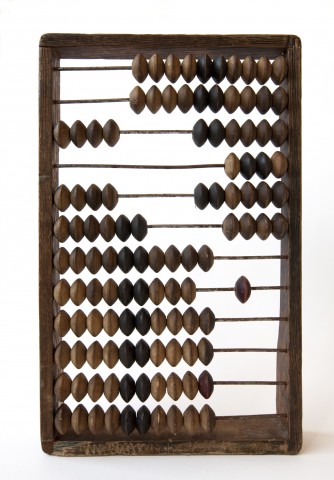





 Table of Contents
Table of Contents










